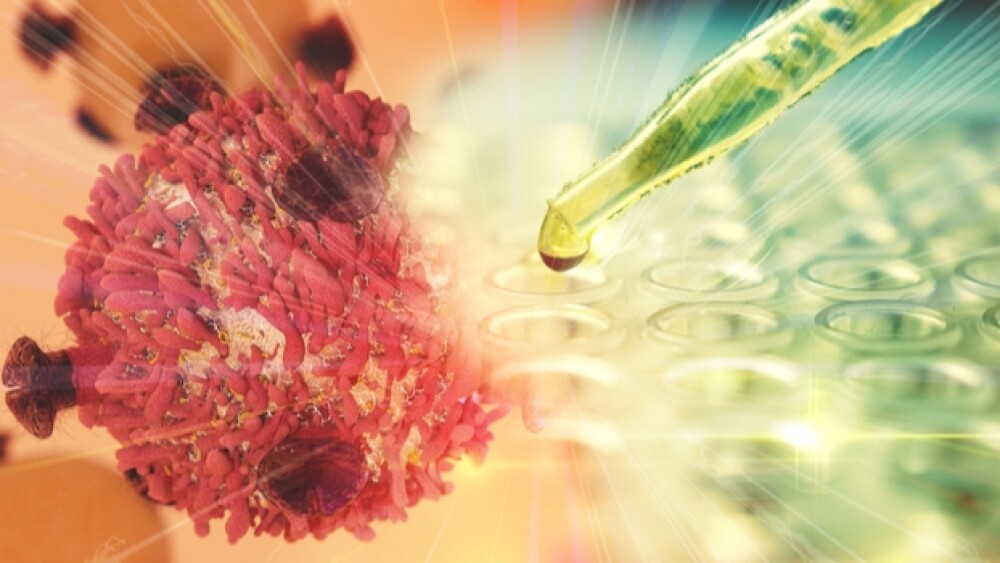Legend Biotech and J&J, Adicet Bio, Curis and Immutep present optimistic early and mid-stage results at ASCO.
The American Society of Clinical Oncology’s annual meeting began on June 3rd and will run until June 7th. Read on for updates from oncological therapeutic programs from Legend Biotech and Janssen, Adicet Bio, Curis and Immutep.
Legend, J&J Drug Sustains Impressive Results in Hard-to-Treat MM
Legend Biotech presented new and updated results from its CARTITUDE clinical development program which evaluates ciltacabtagene autoleucel (Ycilta-cell or Carvykti) for the treatment of multiple myeloma. Cilta-cell was developed in a collaboration between Legend and Johnson and Johnson‘s Janssen Biotech, Inc.
Cilta-cell was approved by the U.S. Food and Drug Administration (FDA) in February based on data that demonstrated a response rate of 98% in patients with relapsed or refractory multiple myeloma with 78% of those patients achieving a complete response in which disease activity was unobservable.
Now, the companies have demonstrated that treatment with cilta-cell shows a deep and durable response over the course of a median 28 months of follow-up. Responses in 97 patients treated with the drug were sustained with 83% of patients achieving a stringent complete response. The median time to first response was one month with responses deepening over time and of patients with minimal residual disease status, two-year progression-free survival rates were 73% at 12 months.
Of note, the study included patients who had received a median of six prior treatment regimens, representing a population who have exhausted their treatment options. Legend also presented data from a Phase II trial which demonstrated the drug’s ability to be used as an earlier treatment for the disease.
Adicet NHL Candidate Demonstrates 75% Overall Response in Phase I
Adicet presented emerging data from its Phase I clinical trial of ADI-001 which has been developed for the treatment of relapsed or refractory B-cell Non-Hodgkin’s Lymphoma (NHL).
ADI-001 is an investigational allogeneic gamma delta CAR T-cell therapy. The current study of the therapy includes patients who have received a median of four prior therapies, representing a group with high unmet needs. Treatment with ADI-001 demonstrated a 75% overall response rate and complete response rate across all dose levels. Additionally, three patients who had previously relapsed after prior CAR T therapy demonstrated a 100% overall and complete response rate.
Fifty percent of evaluable patients with at least six months of follow-up are reported to remain cancer-free. The early data indicates that the drug produces durable anti-tumor responses. In addition to being efficacious, the drug was also well-tolerated with no occurrences of dose-limiting toxicities, graft vs. host disease or Grade 3 or higher cytokine release syndrome.
Curis Displays Robust Data in Leukemia and Lymphoma
Curis presented data from both its TakeAim Lymphoma and TakeAim Leukemia studies.
TakeAim Lymphoma is a Phase I/II open-label, dose escalation, dose expansion clinical trial evaluating emavusertib as a monotherapy and in combination with ibrutinib in patients with relapsed or refractory hematological malignancies. Eight of the nine evaluable patients experienced a reduction in tumor burden which included two complete responses and two partial responses. Interestingly, one patient who achieved a complete response had previously been treated with ibrutinib alone.
TakeAim Leukemia is a Phase I/II dose-escalation and dose-expansion study investigating the efficacy of emavusertib as a monotherapy and in combination with azacitidine or venetoclax in patients with relapsed or refractory acute myeloid leukemia or high-risk myelodysplastic syndrome. The results presented included safety findings which showed that emavusertib was well-tolerated across multiple dose levels, no dose-limiting myelosuppression was observed and no cumulative toxicities were observed. In patients with acute myeloid leukemia, 40% of those treated achieved a complete response rate with partial hematologic recovery. In those with myelodysplastic syndrome, 57% of treated achieved a response rate.
Immutep/Keytruda Combo Nets 42% Response Rate in 1L NSCLC
Immutep reported results from its Phase II clinical trial of eftilagimod alpha (efti) in combination with Keytruda (pembrolizumab) for the treatment of non-small cell lung cancer (NSCLC).
The combinatorial therapy showed an overall response rate of 42.7% in evaluable patients. The therapy showed favorable anti-tumor activity and encouraging responses even in patients who are less likely to respond to anti-PD-1 monotherapy. Other secondary endpoints, including disease control rate and interim median progression-free survival, also continue to demonstrate improvement.
The therapy was well-tolerated, demonstrating a favorable safety profile. The combination of efti plus Keytruda shows favorable efficacy in the first-line treatment of NSCLC, with results supporting continued late-stage development of efti.





